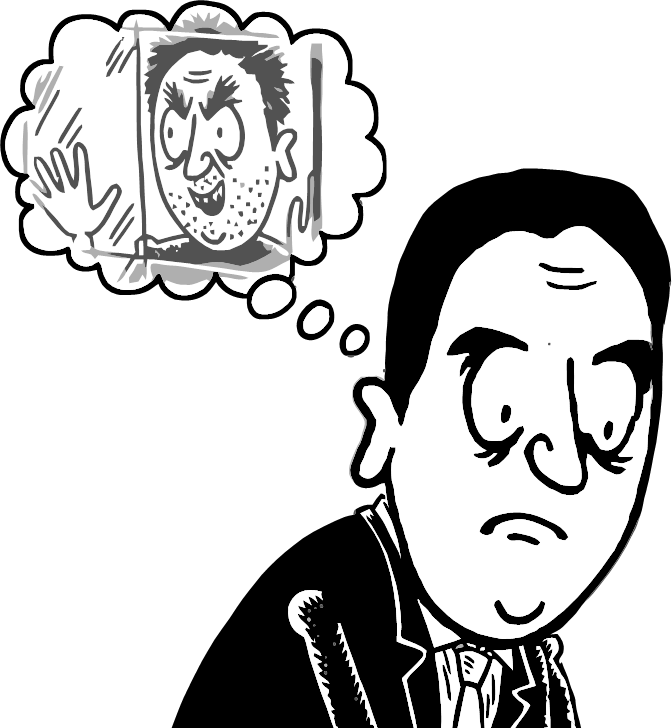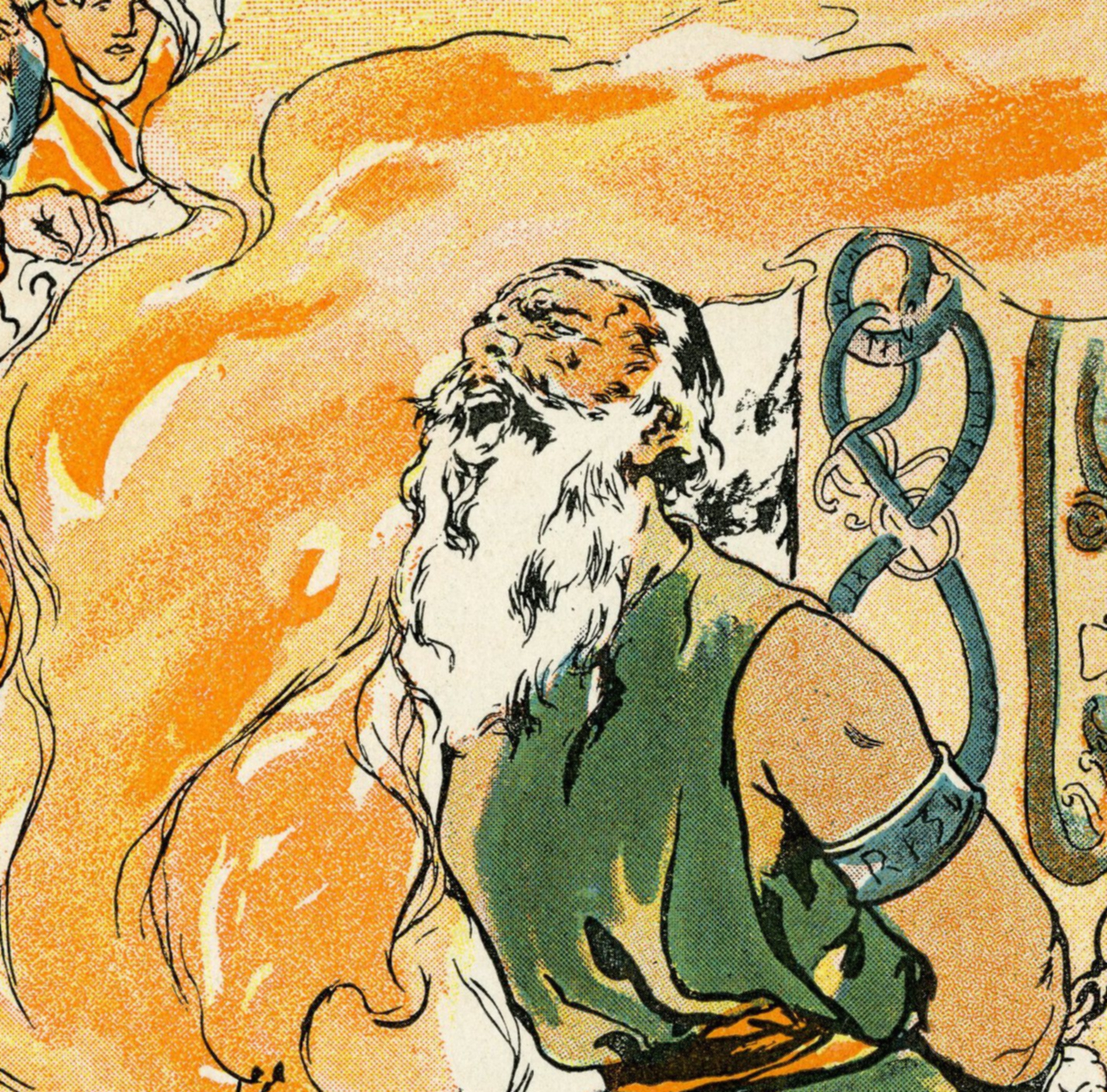It's always the patriarchal conquerors like the Ancient Romans or the Ancient Greeks that they idolize and never the people like, say, the Picts or the Celts or the Gaul that rebelled against the brutal Roman empire. It's never the Scottish or the Irish heroes who fought back against the British Empire that followed in Rome's footsteps. None of them probably even know who Boudica is.
Ironically, a lot of the stuff you could call "white culture" was burnt at the stake, banned, brutalized, and literally demonized by the Empires that chuds think are so civilized. A lot of pagan culture was lost to time, or warped by Roman 'scholars' for propaganda purposes. If they truly cared about their 'culture', then "Muh Christian trad wife' would be seen as killing the identity of pagan women, rather than an aspiration.
But what if matriarch got bigger booba? Like massive mommy milker booba

If my boobs were bigger I'd totally start an insurrection against the romans

As a slight counterpoint, there are some reactionaries who obsess over historic European pagans (especially Norse but also Germanic and Celtic) for example nazis with their runes. However you do have a point overall, that these reactionaries tend to jerk off to the image of ancient Rome especially
Yeah, it just goes to further prove that there is no definitive 'white race'. And white supremacy at its core is flawed and silly.
had an uncle working in Wales and he realised one workday that he was the only one on the worksite that didn't love Hitler. Bunch of nazis decided that Christianity was Jewish so they decided to retvrn to Celtic paganism
The Matriarchal pagan stuff is a Victorian romantic invention. We know extremely little about the societies of the Celts and related peoples, with the vast majority of what we do know coming from two accounts, both Roman, which are very obviously reductive takes of similar academic rigour to Victorian anthropologists talking about the Australian aboriginals.
While of course, much of what people are attached to in their fixations on the Romans and Greeks is also Victorian fiction, we at least have a wealth of first hand written sources and corroborating archeological evidence. For the Celtic peoples across Europe and particularly in Britain, we have essentially nothing. No idea of what their religion looked like, what their laws and traditions were or how they organised their society.
That's not fair....we have what said Romans wrote about the Celts whom they butchered
None of them probably even know who Boudica is.
This is certainly true of the reactionaries of today although strangely Victorian Britain did sometimes use Boudica, and celtic resistance to the Roman occupation in general, as something of a propaganda tool against rival European powers which is pretty confusing. Guess it's a bit like how right wing Italians will try and invoke Giuseppe Garibaldi even though he was involved in the First International.
Weak men failing to defend Rome...
Why not strong men successfully fucking up Rome?
Boudica entirely makes sense as a British nationalist symbol a very old idea in British politics from the break from Rome and becoming protestant to brexit is that as we aren't on the continent we will never be respected in continental Europe and as such being part of any collective European identity means foreign rule. It's a strong throughline in ideas about the Norman Yoke, Roman Catholic clerical authority being resented, the English civil war and now the EU
Boudica being anti-Roman fits neatly into the political ideology of British meaning not European
The International Workingmen's Association, the first large international organisation of socialists and proto-socialists.
I also do not know who Boudica is, please educate me.
None of them probably even know who Boudica is.
there was an infamous bnp "educational" video once that gave a mediocre recounting of her and the iceni's exploits (ending with the godawful line "and boudica was WHITE!") and they couldn't even say her fucking name right
Yeah, they don't give a shit. Just the usual appropriation that right wingers do before idolizing her oppressors the next day.
Oh god I remember that shit, they also invoked Henry VIII as a great white UK hero which is hilarious given that he was a lousy king who undermined the Kingdom of England's position as a regional power with all of his bullshit. Not sure why they didn't go for Elizabeth I who was a far more competent English leader from a right wing/establishment perspective. I guess they didn't want to include too many women.
Of course, fascists are never going to be good at understanding history, it was around the same time that the BNP was sending out leaflets with a picture of a Spitfire on the cover - a Spitfire in Free Polish markings lmao.
Henry the 8th was for everything else he was a genuinely cunning statesman who among other things did break the power of the feudal barons over the English state
We focus a lot on funny fat guy obsessed with a son. But he wanted a son because without a son the barons would never stop thinking "Henry is powerful but I have to look to the future who comes after" and marrying off his daughters as heirs would mean being forced to allign as a subordinate power to either Spain or France.
He was also a brutal serial killer who would have close friends killed on a whim. But it's inaccurate to portray him as just a buffoon
Yeah, that's true. There was something of a theme of Tudors falling off in their later years.
Imagine being so angry that you and your mates annihilate a capital city
I would very much like it if a revival of nature worship occurred as a religious movement. With climate change the way it is I believe it would be quite successful. There is however far too much potential for the kind of burning man crowd to take it over and turn it into cringe instead of a proper folk-ey working class thing.
For a revival of nature worship, we would first have to be sure that pre-christian and pre-roman societies did actually practice anything of the sort, which we are not.
On top of that, I'm not sure that a religious movement is necessary or desirable for nature advocacy or preservation.
american natives were tremendously successful in reshaping the landscape and environment to suit their needs and hold nature in deep esteem. land as kin is totally sufficient. a peer relationship, in other words.
We do know it occurred in Indo-European societies, but it was not born of love of nature but close dependence on it.
Shinto religion is an example of humans still doing a form of nature worship in my mind. Assigning spirits to everything and worshipping those spirits and the "balance" of them is in its way the worship of a natural system. It's very very against the destruction of ecosystems and nature because it's incredibly harmful to the spirits, so while nature might not itself be the thing being worshipped by Shintoism the spirits created by nature require the protection of nature in order to exist. It's somewhat close.
Ok so it's not based in europe but does it matter? Humans can worship nature elsewhere so you could essentially create such a religion for the european context instead.
Astroturfing the creation of this religion was a minor plot element in The Ministry for the Future
Nature religion depends upon a view of nature as uncontrollable and superior to humans. We've learned how to control it. Not 100% but enough we can make rocks into fertile soil and bring back dead forests. We can't relate to nature the same way earlier societies could.
Nature worship isn't really a thing if it's anything like how anthropologists interpret indigenous spiritual beliefs. It's more like an acknowledgement of the universe and the forces shaping it being much larger than we are and recognizing that we're all a part of it as well in life and in death.
Federici go brrr. There's a reason that capitalism and its form of state derives purposefully from the Roman state. White culture was always constructed to lionize Roman sociocultural norms.
this is what makes her terfy turn so hard to understand. Caliban and the Witch does such a good job of analyzing the material origins of patriarchal and cisheteronormative relations that I struggle to wrap my head around how she missed the obvious conclusions of her own work. kill your heroes, I guess.
you can't actually fight ahistorical nonsense with ahistorical nonsense that makes you feel good, sorry.
Good post, before the west colonized the world we had already been colonized by Rome and the church
We don't even really know who the fuck we are anymore or where we came from and yet those ignorant white marble statue avatar dipshits are proud of this instead of sad, it's pathetic
We don't even really know who the fuck we are anymore or where we came from
i don't really think there's a "secret truth" or whatever to be learned. the traditions are destroyed and resurrecting them would be as illegitimate as modern hebrew. we "came from" the settler empire. there is no "we" in that historical sense, only the present and the culture of exploitation we reject.
Ironically, a lot of the stuff you could call "white culture" was burnt at the stake, banned, brutalized, and literally demonized by the Empires that chuds think are so civilized.
don't worry, norweigian fash appropriated this too
Boudica is about as solid evidence of matriarchy as Isabella, Lizzy or Margaret. And late medieval/early modern Europe was very much not a matriarchy (believe it or not). Never mind that the Romans were pagan themselves.
Women were often among the earliest to adopt Christianity in pagan Europe.
Women were often among the earliest to adopt Christianity in pagan Europe.
big L
I highly recommend reading up on the Anabaptist movement in England. It is much later, but women in Christianity in Europe have an amazing history of progress and revolution. The real history is less romantic, but often gives a far great appreciation. Plus its not an assumed or piecemail history, we have some recorded speeches and writings of women during the social upheaval of the English Civil War.
I highly recommend "The Many-Headed Hydra: Sailors, Slaves, Commoners, and the Hidden History of the Revolutionary Atlantic" by Rediker and Linebaugh. They go into some really neat figures. The chapter "A Blackymore Maide Named Francis" about a free black woman in England and the one bit of info we have of her and all that we can point to just from that for the amount of social change and regression in a short time, the birth of new movements and their attempts to reckon with their more radical immediate past by those who lived it, etc.
Or based. Christianity in terms of a follower of Jesus and not the dogmatic religiosity that ruling classes use to gain power, is extremely radical. They were straight up forming communes and parallel systems of power.
also basic stuff that we don't even think of today like "it is wrong to consider your wife to be a literal slave" The cultural shift in European culture as a result of Christianity is hard to underestimate. Romans thought it was in the natural order for a patriarch displeased with his wife to leave their infant son on the street (where in theory they could be adopted but in reality would be eaten by stray dogs). If you grew up in Roman society the thing you would find outraging in that situation would be if the mother complained
I know someone who is teaching themselves Latin in retirement and according to them Latin talks about death the way English talks about rain or the inuits snow
Although a pater familias could do that, it was still weird to do.
Also, they do not speak of death and dying more than any other ancient culture. The problem is we mostly have stories of political figures or generals, mythical or religious texts, and funerary inscriptions. These things tend to discuss death pretty often. People also just died a lot, and the death of animals wasn't something you could forget about when they were butchered in front of you.
Chuds heads exploding in shock at the concept of the Galli Priestesses.
The Scottish and Irish that fought the British weren't pagans. Irish nationalism by the time of the empire was explicitly Catholic as were the Jacobites who were as much fighting Scottish leadership as English and weren't fighting for independence they wanted to be British with a Catholic king.
The Scottish didn't fight the British empire they were partners in it especially in the colonisation of Ireland.
One of the big examples of this is that the Irish brough the Angles, Saxons, Jutes etc the Latin alphabet which they applied their languages to instead of Futharc runes. The Irish did this by spreading Christian texts and the bible. So to all those who imagine some pagan Irish past fighting British Christendom, remember, the Irish being Christian and spreading it is why we are writing english in THIS alphabet specifically.
Also the idea of Christianity being colonial in its spread in Europe isn't really accurate. The English weren't conquered and forced to give up the old gods they gave them up willingly. Christianity was even a rallying cultural symbol against the slavery and conquest of the norsemen. The Romans at the time of their conversion were even the imperial power
I've even seen someone claim that the reason some norse folklore portrays nature as harsh and dangerous is Christian influence demonising their old gods and not the fact that of course they think nature is harsh they lived in Scandanavia. Nor is Christianity more anti-nature than paganism. Christianity and Abrahamic faiths do include explict language on stewardship of nature and the Romans under their old gods quite happily made Carthage into a desert and would as a tactic of occupation punish revolt by for example burning the heather and salting the earth
As others have alluded to here, Boudica is kind of a perfect example of why the matriarchal pagan past stuff is also bunk history largely. Fantastic video recently by J. Draper on the subject. https://www.youtube.com/watch?v=Zq5oY3Ki7X0
The simplest way to put it is even during Roman times everything we know about her is from 2 sources both of which are different from one another and clearly aim to use her for political ends. Boudica as we know her, as she has existed in any meaningful way in society since she lived was a political propaganda piece. In fact the strong female leader element was part of it from the beginning. In the two wildly different battle speeches the Romans gave her, she speaks about being a female warrior, but it is playing to a different purpose in each. Here is a write-up from askhistorians
The problem is that all three accounts of Boudica are extremely Roman in context. They're written by Roman historians, and are full of Roman ideas about virtue, femininity, justice, government, etc.
Whenever the supposedly Briton characters in these sources speak (and all speeches in all Roman histories are the work of the author, not the actual words of the historical personages) they do so for a Roman audience, referring to the Roman context. It's laughably obvious in Dio's history, where Boudica spends half the speech referring to legendary queens from Greek and Roman myth such as Nitocris and Semiramis, or to powerful women from recent Roman history such as Agrippina and Messalina. Dio actually puts a parenthetical "For we have learned about these from the Romans" after "Boudica" says this, because otherwise all this classical learning from a British queen might have been too much even for his audience to stomach. Even the rather fun dig Dio's Boudica aims at Nero, "[the Romans] are slaves to a lyre-player and a poor one too," is clearly more something a Roman historian would say rather than a British queen.
However, even the much more subtle and believable-sounding passages in Tacitus are replete with such Roman contexts and Roman ideas about morality and justice. Where Dio's Boudica is a brutal, masculine, Barbarian queen, and Tacitus' Boudica in the Agricola seems quite similar to Dio's version, his Boudica in the annales behaves and is described like a virtuous Roman matron, avenging a wrong done to her as a Roman citizen by greedy and low-born servants of a rap*cious procurator. Tacitus' version of the rebellion is a morality tale: The greedy Romans offend against the natural order whilst the (brave, disciplined, properly Roman) governor Paulinus is away, and as a result they are punished by death and defeat at the hands of the Britons. However, the Britons aren't satisfied with their revenge and continue their war, and are then punished by the returning governor, who restores proper law and order...
We'll probably never know what kind of a person Boudica actually was, or what motivated her. The sources on her life are extremely interesting, but they teach us much more about what conservative upper-class Romans thought about women, foreigners and justice than they do about the actual personality and motivations of the characters they're ostensibly describing.
Then centuries later she becomes popular again literally for the British empire. They change her speech to being about empire and prophesizing the British Empire. And they play up her similarities to Queen Elizabeth during her time. So the history you are talking about, the real past of Europe, is literally written by wealthy white Romans for their ends, and British imperialists doing the same. Not to sound harsh to anyone, but this is just more mythmaking. Not even replacing old European myths with new ones, but bringing back the OG Europe myths like Boudica.
More than that though, we don't need an invented past that is clipped from the very same "history" we decry, we don't need to invert that by imagining a past in which Pagan was a coherent set of beliefs or something anyone consciously viewed themselves as, etc. James Connolly writes about how we choose to explain archeology and how a surface level feminist approach ended up just further burying the actual Irish women of history. Here it is in its entirety
In its issue of August 8, the Boston Pilot had a very interesting article upon the life of a typical Irish girl of ancient Ireland. The article dealt with the life of the ancient Irish as it has been reconstructed by antiquarians from a study of the gold and silver ornaments found in various bogs in Ireland, and from the allusions to the use of those ornaments made in old Irish manuscripts
All this is interesting, especially to those who desire to have their Irish patriotism or pride of race buttressed up by historical data. And, of course, there are many such.
I, also, was much interested in the article, but for another reason. To me it was especially interesting as illustrative of the curious effect modern property relations have upon the mind of even the most gifted amongst us. The gifted authoress of the article in question took as the imaginary subject of her sketch an ancient Irish princess and reconstructed her life in the most ingenious manner, describing her lying down and uprising, her hunting and riding and chess-playing and sweet-hearting and, in fact, all the incidents in which an Irish princess is revealed or touched upon by the old Irish manuscripts in song or story.
In all of those pursuits she was waited upon by a slave woman, a different slave woman for each separate amusement; in all, there must have been at least a dozen different slave women waiting upon the one princess, and what appeared to my cold Socialistic mind as curious was that the writer wrote and treated of the princess as a typical ‘colleen’ of ancient Ireland, and utterly neglected to recognise in the slave women any right to be regarded as Irish types at all.
Yet when we remember that for every princess living the life of luxury and ease sketched by the Pilot writer there must have been at least a dozen other women attending her and a hundred other Irish women working in the fields attending cattle and weaving and spinning to feed and clothe and house and ornament her, it must be conceded that any one of these hundred useful Irish women had more right to be considered ‘typical Irish colleens’ than the useless drone whose life our authoress has reconstructed with such loving fidelity and care.
By all means tell us about the typical colleens of ancient Erin, shake up for us the dry bones of history and tell us about the wives and mothers and daughters of the producing classes of our native country, but do not ask us to believe that a princess was anything more than a type of the class to which she belonged – a predatory useless class – a class whose predatory proclivities hindered the free development of the nation and prepared the way for its subjection.
What a history that would be which would tell us the history of the real women of Ireland – the women of the people ! What a record of ceaseless suffering, of heroism, of martyrdom! What a recital of patient toil, of uncomplaining self-sacrifice, of unending abnegation! Aye, and what a brilliant tale of things accomplished, of deeds done, of miracles achieved!
Think of all the insurrections against British tyranny in Ireland, and as you honour the men who went out to front the armed force of the oppressors think also of the brave women who kissed them and cried over them ere they went, but bade them go for freedom’s sake.
Think of all the slimy roll of informers in Erin, and wonder when you remember how seldom even tradition places a woman’s name upon the list.
Think of the long and bloody history of the fight against private property in Irish land – against Irish landlordism, and when you remember how the Irish mother, the woman of the house, consented to suffer eviction and ruin rather than let her husband betray the cause of his friends and neighbours, then if you believe in a God thank Him for the spirit and courage and honour of our Irish womanhood.
But then you will not be accepting princesses as the types of Irish life, you will be looking for types of the real womanhood of Ireland where only they can be found, among the producing classes.
Those Irish girls who in the recent dock strike in Belfast joined their fathers and brothers and sweethearts in the streets to battle against the English troops imported in the interests of Irish capitalism are to my mind a thousand times more admirable ‘types of Irish colleens’ than the noblest bean uasal of Gaelic Erin much as I admire the latter.
What would we think of the historian who would picture the life of the daughter of an Irish aristocrat of today, and then tell us that this was a picture of the life of a typical Irish girl of the twentieth century? We would laugh him to scorn. Yet that is the manner in which history is written.
The Celtic (probably one of the oldest) version of Cinderella is about a girl (The Girl Who Tends the Ashes) who is essentially an indentured servant of a landlord tyrant who runs an inn. Like in the other variations, the Prince comes to visit and the woman who runs the inn tries to get him to notice her two daughters, and sends the protag out to gather from the woods. The Prince, to escape the overbearing inn owner, finds The Girl in the woods and treats her like a slave and so she runs deeper into the woods, where she meets a based spae-woman who lives alone and who hatches a plan with her to basically fleece the Prince at his big party with conjured golden clothes.
It rocks tbh, Celtic stuff is full of odd class-conscious tales like those. Probably why the Irish Nationalists had so much success bringing back those old tales.
























